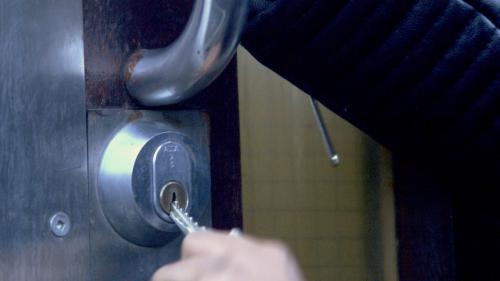Can you spare a few minutes?
We would be grateful if you could tell us what you think of this information by completing our Feedback survey. We will use your feedback to improve our guides, inform our future work and seek funding.
Top tips on how to show a landlord you will be a good tenant

Our top tips on how to show a landlord you will be a good tenant
1. Be organised
This is one of four short guides for people needing information about guarantors. The other three in this series are:
Be organised and make a good first impression – getting accepted as a tenant is a bit like applying for a job. So make sure you:
are polite,
turn up on time for any viewings or meetings,
dress tidily, and,
check any emails or messages you send for typos.
2. Take off your shoes
When you arrive to view the property, offer to take off your shoes. It's a small thing but it helps to show you care. And helps to keep the landlord’s carpets clean.
3. Ask responsible questions
Ask questions that show you will be a responsible tenant. For example, you could ask:
What day does the recycling get collected?
What happens with the bins?
How late can I use the washing machine?
4. Have your paperwork ready
A landlord or agent is more likely to think that you will be a good tenant if you have all your paperwork ready. So, prepare the information they’ll probably want in advance. You'll need proof of:

- Your right to rent - private landlords have to check if a potential tenant has a right to rent, by checking if they have permission to enter or remain in the UK. This rule applies to everyone wanting to rent a private property in England. To understand more about how this might affect you, look at A survival guide to starting a tenancy and right to rent checks.
Current and past addresses, start and end dates of previous tenancies and contact information for previous landlords.
Current and past employers, addresses and contact details, dates of your employment with them and how much they paid you.
Name and contact details for up to 3 personal references – not all landlords ask for personal references but it's good to be prepared. For example, a reference from your previous landlord and a reference from your employer. (If you can't get these in time, just put down their contact details. If you don’t have an employer, you could use copies of your bank statements to show what your income is and where it’s from.)
Anything else that shows that you have a good track record of paying your rent on time – perhaps a printout of a previous or current rent account or bank statements showing you pay the full amount on the same day every month.
If the landlord or agent asks you to provide this information by email make sure that any photos you take of your paper documents are clear enough to read easily. That way, they won’t need to come back to you with queries.
5. Line up a guarantor (if needed)
If you already know that this landlord or their agent is going to want a guarantor, can you provide any information about your prospective guarantor, for example, about their job and whether they own their home?
6. What to do if you can't get a guarantor
If you know you can’t get a guarantor, think about whether you want to try and persuade your landlord to waive the need for one. See What to do if you can't get a guarantor for more information.
September 2022
About this guide
.
 | September 2022 This update was funded thanks to the Litigant in Person Support Strategy. |
 | March 2018 This guide was written and produced thanks to funding from the TDS Charitable Foundation. |